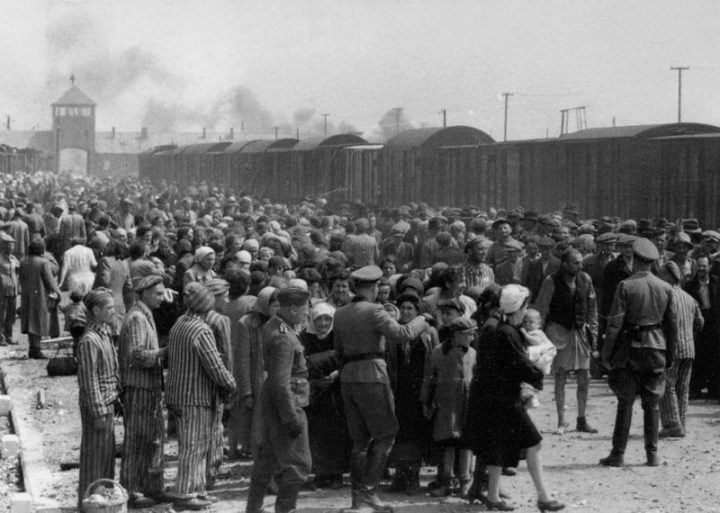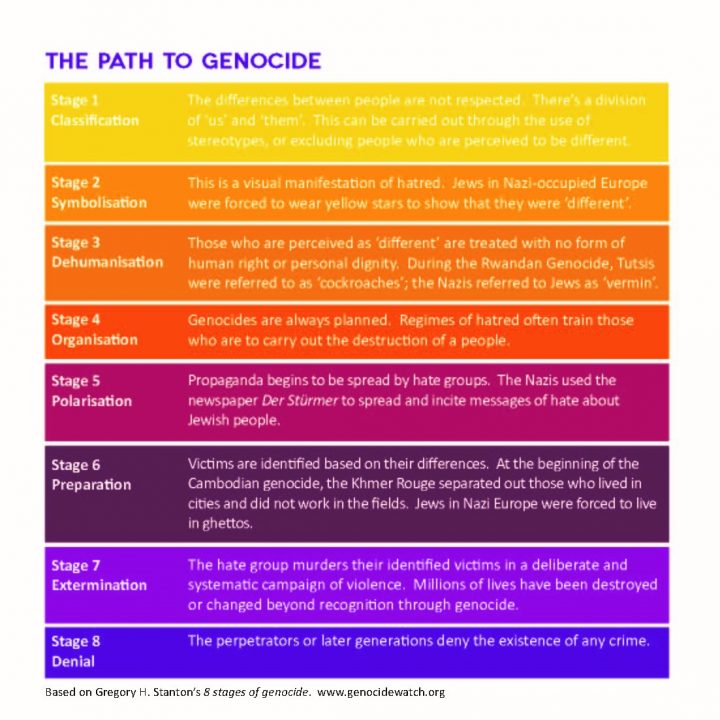By Irene Halford.
Today commemorations to mark one of the darkest chapters in modern history take place across the world. The coordinated plan of different actions (engineered by the Nazi regime) aiming at annihilating the European Jewry known as the Holocaust was not the first display in human history of genocidal behaviour. Records of ancient civilization such as that of Athenians show this to be the case, many other genocides have followed since, and it seems that many more are still to come as the alarming incoming news today from Myanmar shows that there is no sign of it remaining a crime of the past either.
What makes the Holocaust unique is not only the number of victims in such a short space of time but the numerous evidence and witness account available to this day of what exactly happened. It is that very same level of evidence that allowed the set up and the success of The Nuremberg Trials that were to pave the way for the development and enforcement of International Humanitarian law, International Criminal law and later on, the creation of the International Criminal Court.
The atrocities that took place were so alarming to the international community that the 1648 Treaty of Westphalia of non-interference in the affairs of others was seen in need of urgent review if the events that took place during WWII were to be prevented from happening again. Another outcome as a result of the terrible events and the magnitude of these was the conceptualization of the term genocide to identify the crime without name, as Churchill would say, when referring to it. The term first appears in the Axis Rule in Occupied Europe by writer and lawyer Raphael Lemkin. It is the result of combining the word geno from the Greek, meaning race or tribe, and the word cide, from the Latin, meaning killing. Soon after the specific crime was defined, The UN Genocide Convention was established.
It is due to another series of genocides – despite the never again claim (Guatemala, Cambodia, Rwanda, Srebrenica, etc.) that the General Assembly in 1995 designated the liberation day of Auschwitz – the largest concentration camp – as Holocaust Remembrance Day. According to the UN, the aim is to: “establish a programme of outreach on the subject of ‘the Holocaust and the United Nations’ and to mobilize civil society for Holocaust remembrance and education, in order to help prevent future acts of genocide… The resolution rejects any denial of Holocaust as an historical event, urges States to develop educational programmes that will instruct future generations about the horrors of genocide, and condemns all manifestations of religious intolerance, incitement, harassment or violence against persons or communities based on ethnic origin or belief”
The legal mechanisms set up in the aftermath of the Holocaust to prevent this crime need to revised and strengthened as the killing of the Yazidis in Iraq and many other groups around the world show that these are not effective enough. However, we must recognise the progress made in today’s world as no one wants to be associated with the term genocide. So much so that it is proving almost impossible to have it recognised by its correct term as those responsible directly or indirectly will do anything to avoid the association with such a crime, as in the case of Rios Montt, who was found guilty of genocide but freed due to technicalities.











